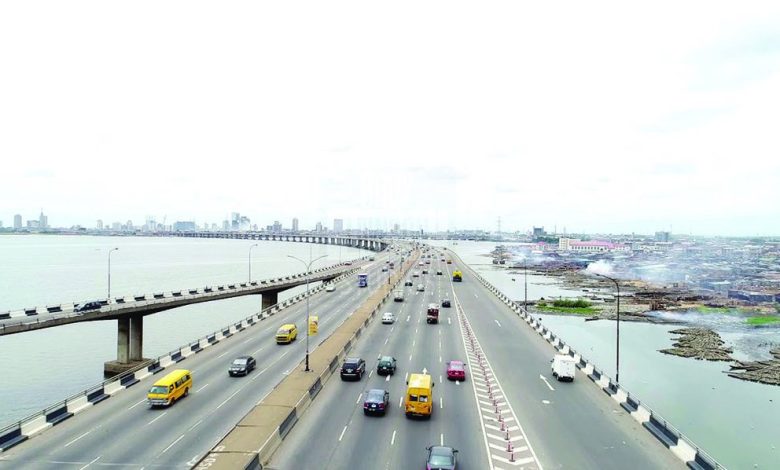
The Lagos State Ministry of Transportation has announced the closure of the third mainland bridge for remedial repairs.
The repairs would be carried out through the Lagos Public Works Corporation (LPWC) in collaboration with the Federal Ministry of Works.
According to the permanent secretary, Lagos State Ministry of Transportation, Abdulhafiz Toriola, the bridge will be closed for two consecutive Sundays, September 17 and 24 between the hours of 7.00 am and 7.00 pm each Sunday.
Toriola noted that traffic would be diverted during the repairs to ensure early completion.
“The proposed works will be strictly executed in two phases with phase one focusing on only the most critical sections on the Iyana-Oworonsoki inward Adeniji Adele/Lagos Island,” he said on Thursday.
In a released travel advisory to ensure seamless movement of traffic, traffic from the Lagos-Ibadan Expressway, Alapere/Ogudu axis, inwards Lagos Island, will be diverted towards Gbagada-Oshodi Expressway to link Ikorodu Road/Funsho Williams Avenue to access Eko Bridge and Lagos Island.
Motorists from Lagos Mainland going through Herbert Macaulay Road (Adekunle axis) inwards Lagos Island via Third Mainland Bridge will be diverted towards Murtala Muhammed Way to make use of Carter Bridge to link Lagos Island.
Toriola therefore urged motorists to be patient and observe safety measures during the palliative works on the asphalt pavement of the bridge.
He added that Lagos State Traffic Management Authority (LASTMA) officers, Federal Road Safety Corps, FRSC, Nigeria police, and other traffic personnel would be on the ground to effectively control and manage traffic.
He said: “We assure that despite the traffic impact on the alternative routes, LASTMA will be deployed to minimize inconveniences and ease movement along the affected corridors.
“Various traffic agencies involved, in conjunction with other security and safety personnel to form good synergy, will ensure appropriate traffic management measures aimed at improving the safety and flow of traffic, reducing traffic emissions, and utilising traffic artery capacity more effectively throughout the duration of the exercise.”
